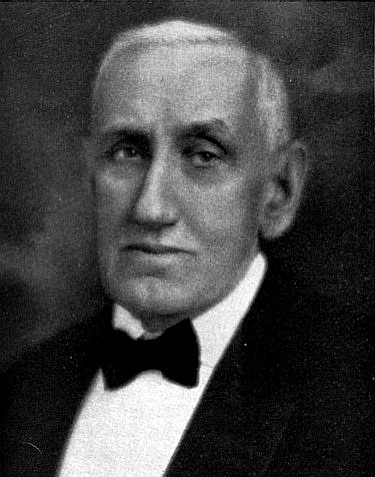| Profile | Major Works | Resources |
Simon Nelson Patten, 1852-1922


American historicist economist at Pennsylvania.
Chicago-born, farm-raised Simon Nelson Patten studied at Northwestern before traveling to Germany (along with classmate E.J. James) to study at the University of Halle in Germany. Patten obtained his doctorate under Johannes Conrad in 1878. Like many of the "new generation" of German-trained economists, Patten found the traditional American universities uninterested, and had to find alternative employment. Patten returned to farming for a while, then found work as a high school teacher.
His old Halle comrade E.J. James had helped create the Wharton School at the University of Pennsylvania. James secured the appointment of Patten in 1888 as chair in political economy at Wharton, where he would remain for the remainder of his career. When James left for Chicago in 1896, Patten succeeded James as dean of Wharton, a position he would hold until 1912.
A polemical economist and social philosopher, Simon Patten was the closest to the Henry Carey tradition in advocating protectionism (1890). His most famous book (1896), Patten argued that economic structures were evolving from "pain economies" to "pleasure economies" along lines similar, but distinct, from Spencer and Sumner.
Simon Nelson Patten was very influenced by the Progressive movement, his 1907 book called for the introduction of an income tax in the United States. He was also a stringent advocate of prohibition of alcohol, flirted with eugenics and contributed to the literature on Christian hymns.
|
Major Works of Simon Nelson Patten
|
|
HET
|
|
Resources on Simon N. Patten
|
All rights reserved, Gonçalo L. Fonseca
